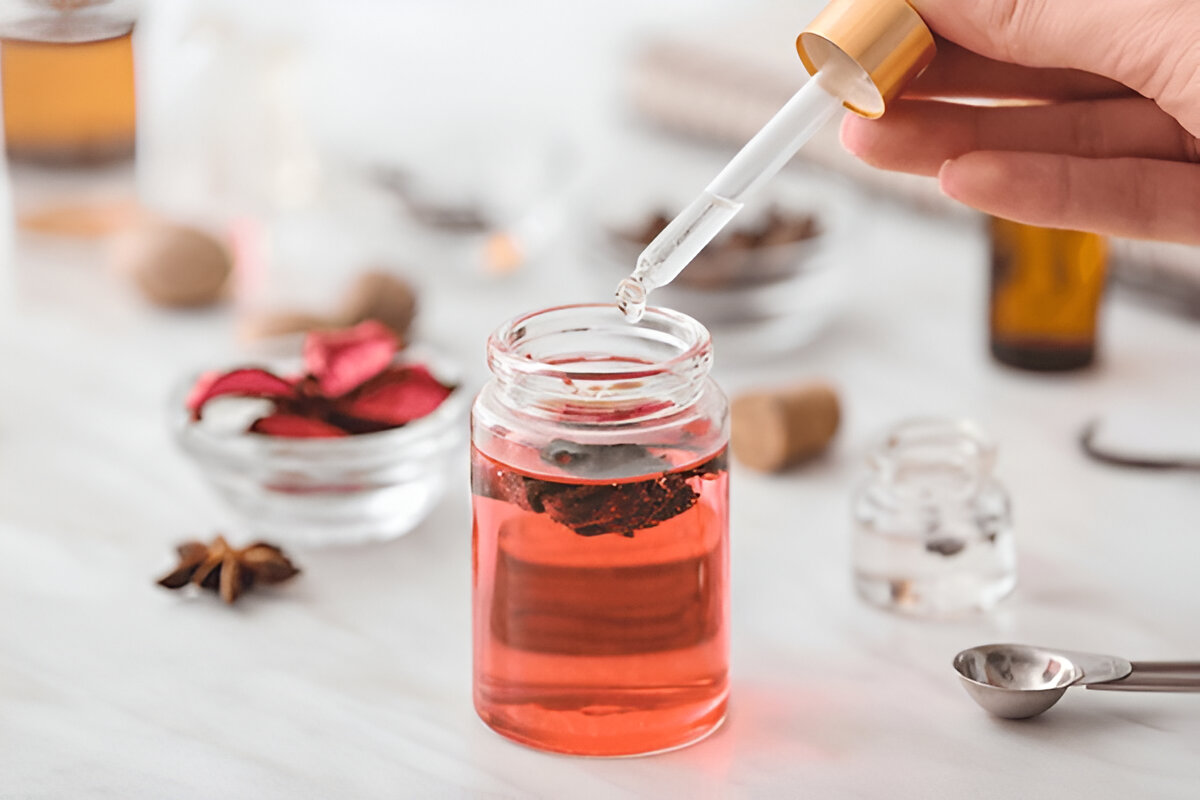The knotty process of creating a perfume seems challenging but envision the self-made perfume interacting throughout the day and elicits an overwhelming response. You designed it with diverse fragrances, fine-tuned percentages, and powerful notes that harness them to uplift moods and days.
The Calamus perfume with fruits, flowers, spices, herbs, or woods may surprise you with its unbelievable aroma in your perfume bottle. The blog explains, how is perfume made, so let’s mold creativity into a self-composed scent, that matches no one!
Why to Make Perfumes?
The creation process doesn’t have any hard or fast rules or formulation but the rewards you can enjoy by crafting your own scent offer uniqueness. This way you can embrace your creativity, and mark your style or statement in any gathering.
Another benefit is you will know the complete range of ingredients that could be purely organic, graceful, and skin-safe, also you can modify the notes and tones to make the scent work for you long-lastingly.
Nowadays, you must have seen that personalized gifts are more loved than buying them, so why not make one with love and care for our life companions? Meanwhile, immerse yourself in soothing effects with fun, rejuvenation, and aromatic healing beside learning a new skill, isn’t it a great time investment? Customize your favorite notes in a mini-burst of blossoming odors that set you apart from others!
Essential Tools And Supplies Required
Ahh! You can initiate the process with just a few things like Fragarnce oil or essential oil, Alcohol or vodka, 2 pipettes, glycerine, distilled water (few drops), a glass jar with lids, a Perfume bottle, a small funnel, and a piece of fabric in case of a spill.
Hey there my fella! Don’t mix fragrance oil and essential as the two are quite different— Fragrance oil has synthetic ingredients, while the second is all-natural with no chemical components.
The tip here is don’t buy expensive supplies as this has no role in perfume outcomes, instead, your smartness, skill, and creativity have to, so go over the board to make a signature scent.
Extracting Fragarnce Oil
Let your inner scientist come out, and extricate the fragrance oil with a quirky approach. Toss on your magical ingredients from citrusy, herbal, spicy, floral, fruity, marine, woody, oriental, and fragrance spectrums, like choosing from a fancy, platter of salads.
Squeezing the oil from them can be super-amazing and can be done in six different ways, free yourself from boundaries and consider any that suits you.
The first method is steam refining, the conventional method using floral petals with water and steam to coax the oil from them, a preferred choice for floral and fruity notes.
Second is solvent extraction, soaking the elements in odorless ethyl alcohol, and boiling them will evaporate the alcohol and leave behind fragrance oil.
Spin your bottle if you want to dare yourself with pressure, enfleurage, or maceration techniques. All are different, the pressure method is good for citrusy oil extraction just a fine force onto your fruit can squeeze all of the zesty oil.
The enfleurage process is a slow and more endeavor as the floral ingredients are crushed over the greased glass sheets after a time you can take out the oil. So, this is not my choice because it’s too demanding. Lastly, Maceration in which fats are dissolved with ingredients and then pressurized to take out oil.
Consider The Rule of Percentages
Beforehand decide, how rich, strong, or light you’d like your fragrance to be. As Eau de Perfume has 15-20% fragrance oil amalgamated with 85-80% of ethyl alcohol, while Eau de Toilette has standard 5-15% fragrance oil with 85-95% of solvent.
Both scents will affect the lasting impression, the more fragrance oil means more intense and lasting your perfume will be. Likewise, colognes are not long-term because they have only 2-4% extract oil, while Extrait de perfume has 20-30% oil that radiates the essence for up to 12 hours or even more!
If you need longevity, opt for more essence oil and less alcohol because the solvent here can evaporate quickly allowing your scent to evolve.
Let me put forward an example to illustrate the percentages you will be using:
30 mL of Eau de perfume will have 15-20% of fragrance oil and 85-80% alcohol, then:
Essence oil will be taken out by 30 ml× 20 % =6 ml
Therefore, to make 30 mL perfume you’ll need 24 ml of alcohol. Here, you can adjust alcohol by diluting it with water to adjust the fragrance.
Why not share my composition?
- In my top note, I took 2ml total with 1 ml orange mandarin and 1ml bergamot.
- The middle note consists of 2 ml jasmine and 1 ml of roses, with a total volume of 3 ml.
- My base note had my all-time fav sandalwood 1.5 ml.
Blending the fragrance oil notes in 23ml of alcohol to mark up 29ml volume total.
I left a margin of 1 ml to allow for adjustment or modifications to my signature scent. After two weeks, I checked and tested too— The results are spectacular, but still placed it there to get more enriched!
Blending With Alcohol
Take your fragrance notes and add them one by one, to each other. Once your fragrance oil is ready, dilute it with alcohol. Don’t shake just gentle mixing can combine the notes with solvent, thus they will start settling with each other. Cover your glass jar lid and let it mature for 2-4 weeks. This is necessary otherwise you may not get the real experience of your experimentations.
Perfume aging enhances the potency of your scent allowing top, middle, and base notes to settle and making it more powerful for whole-day wear.
Testing & Enjoying
After a month’s wait is over! Let’s see what a majestic thing we have created. Don’t use it directly on your skin, instead use perfume stripes that give you a better picture of aromatic profile.
If you think your scent is good to use, put it into a perfume bottle and enjoy. If it needs some adjustment dilute with water to lighter the intensity or add more base if it’s not complex. You can add a fixative to this to improve the shelf life!
Conclusion
Developing a perfume is a rewarding art that makes your moments of life more pleasurable with vibrant fragrances surrounding you all day. How is perfume made becomes easy with simple steps, navigating you to reach your destiny of alluring fragrance.
To make perfume you need fragrance oil, blending it with alcohol, diluting it with water to adjust potencies, and allowing it to mature. Next time ask your friends to accompany you for a memorable time. The process demands thoughtfulness and fragrance love, so go ahead making your fragrance statement.
Frequently Asked Question
-
How to store perfume?
Put your perfume in a cool place, avoiding direct sunlight, and humidity like wardrobes, draws, or closets.
-
Using vodka is a good choice?
You can use vodka instead of Alcohol but make sure the product is high-quality and unflavoured.
-
If I like organic perfumes how can I make them?
You can make it completely pure without alcohol, use carrier oil like jojoba or sweet almond oils, as an alternative.
-
Can I buy fragrance oil or do I have to make it myself?
You can purchase it as this is available however, making it yourself needs more time and effort.
-
Why should I make perfume?
You can make perfumes to enjoy your leisure time, add sentimental value, and make yourself appear different to others.

